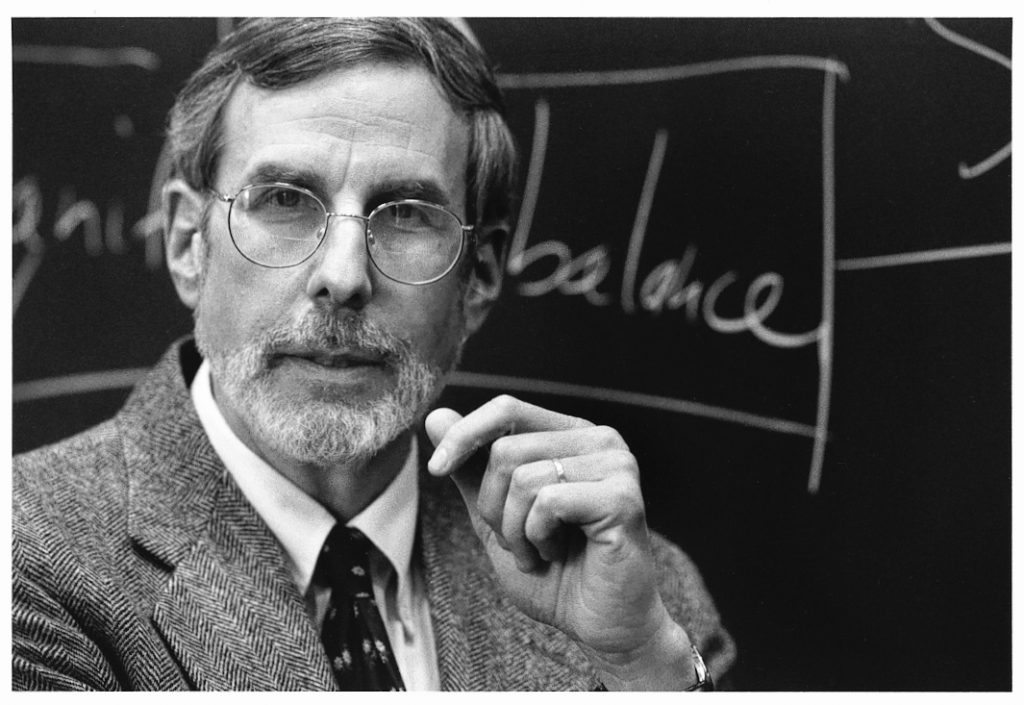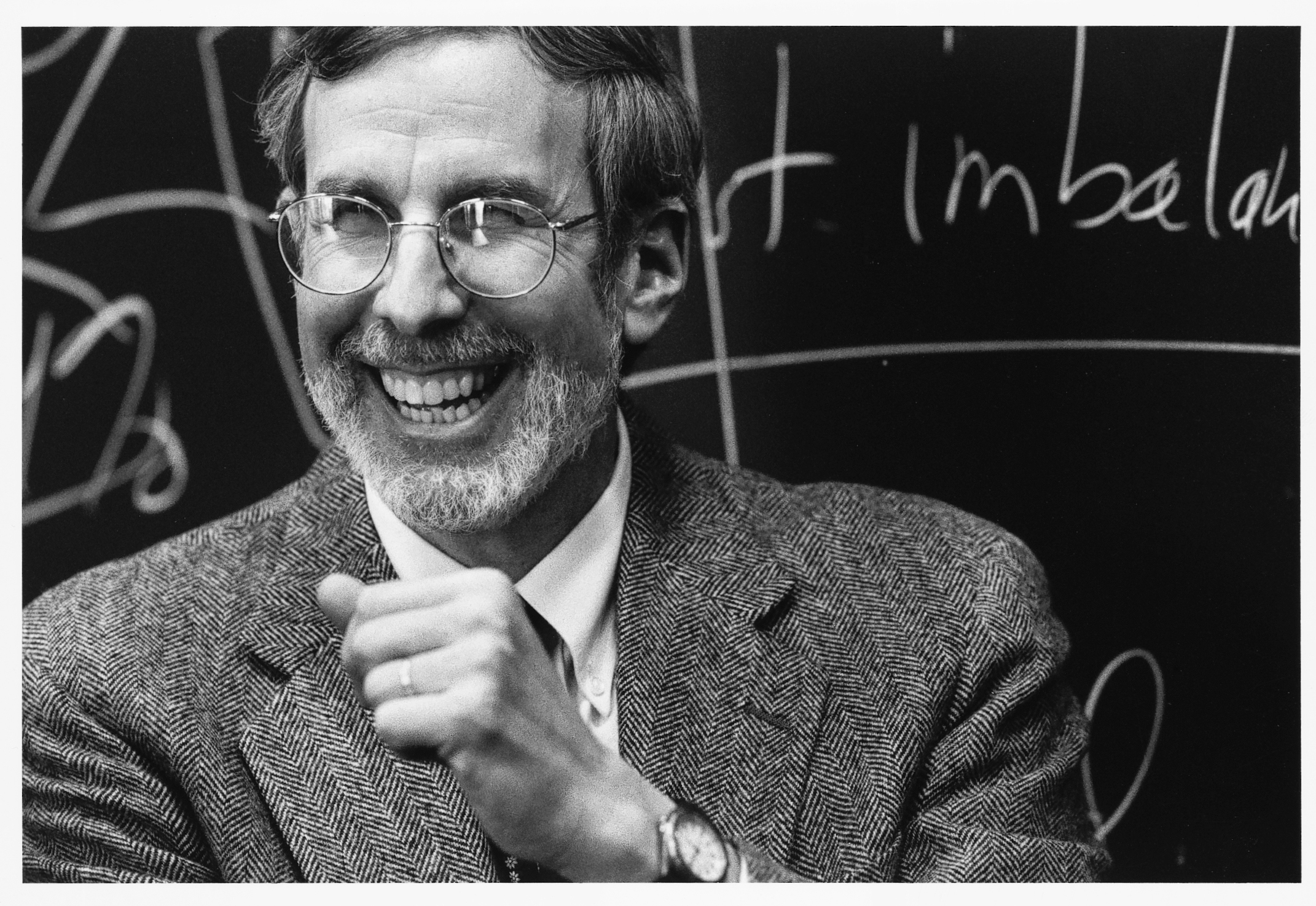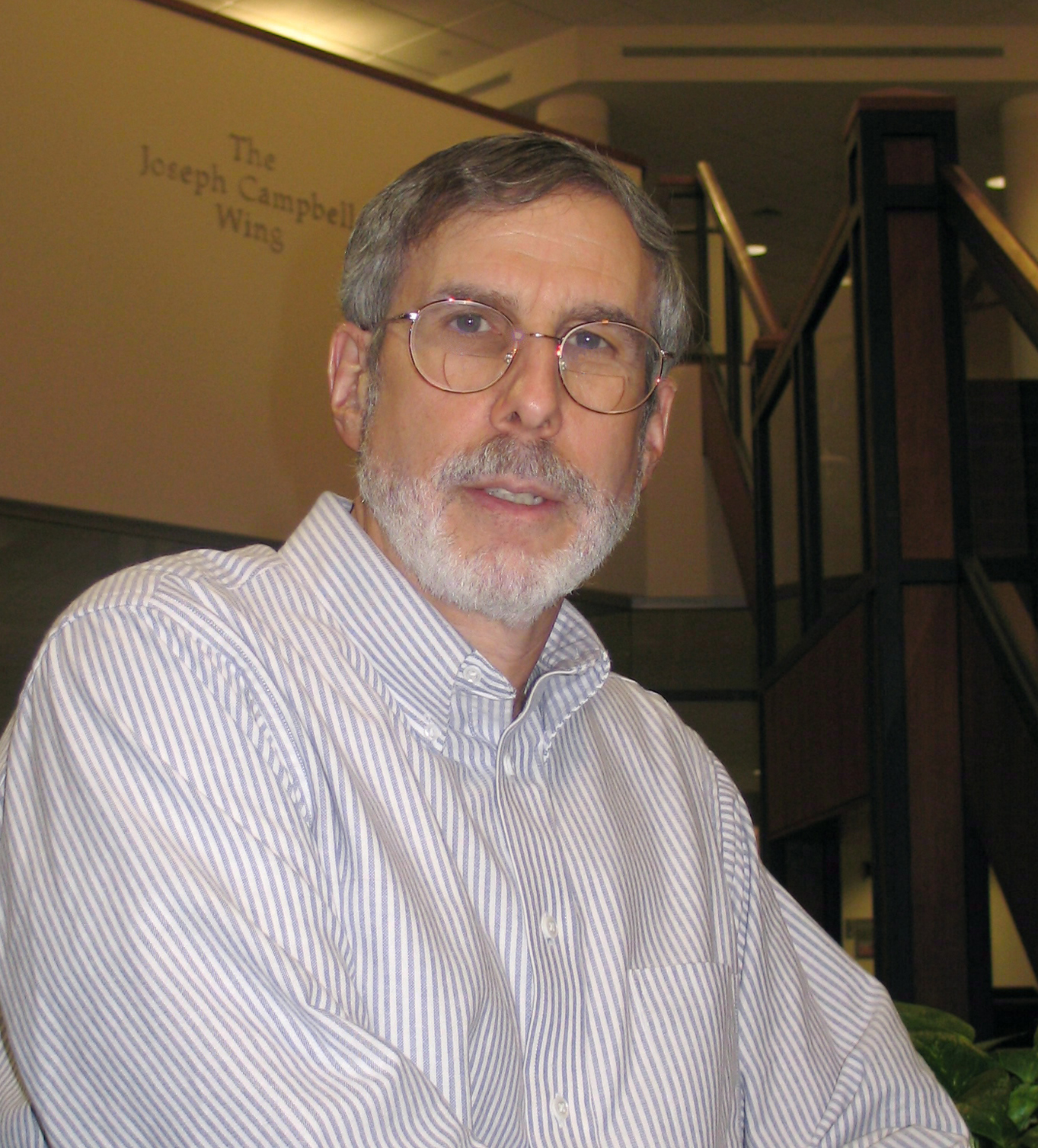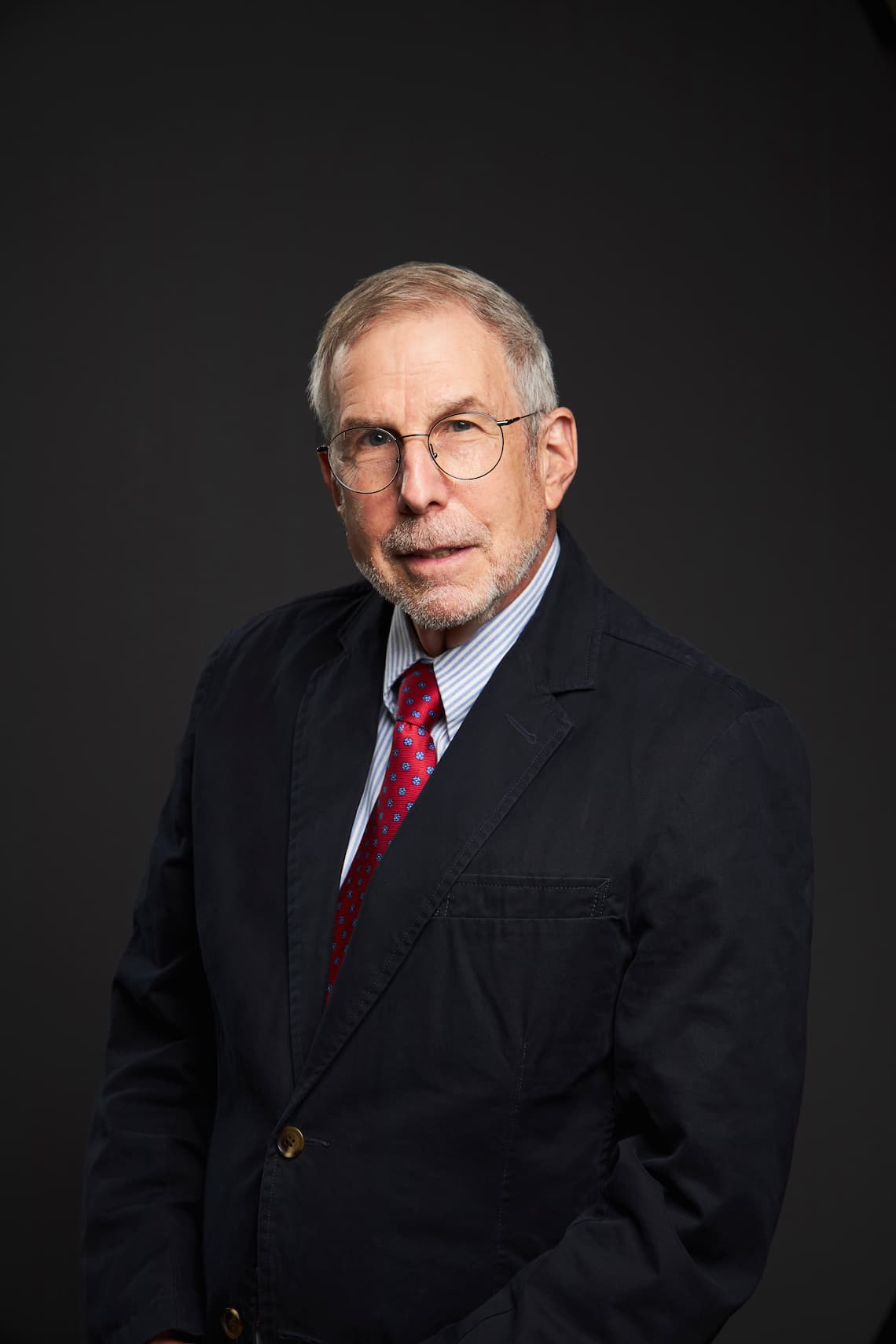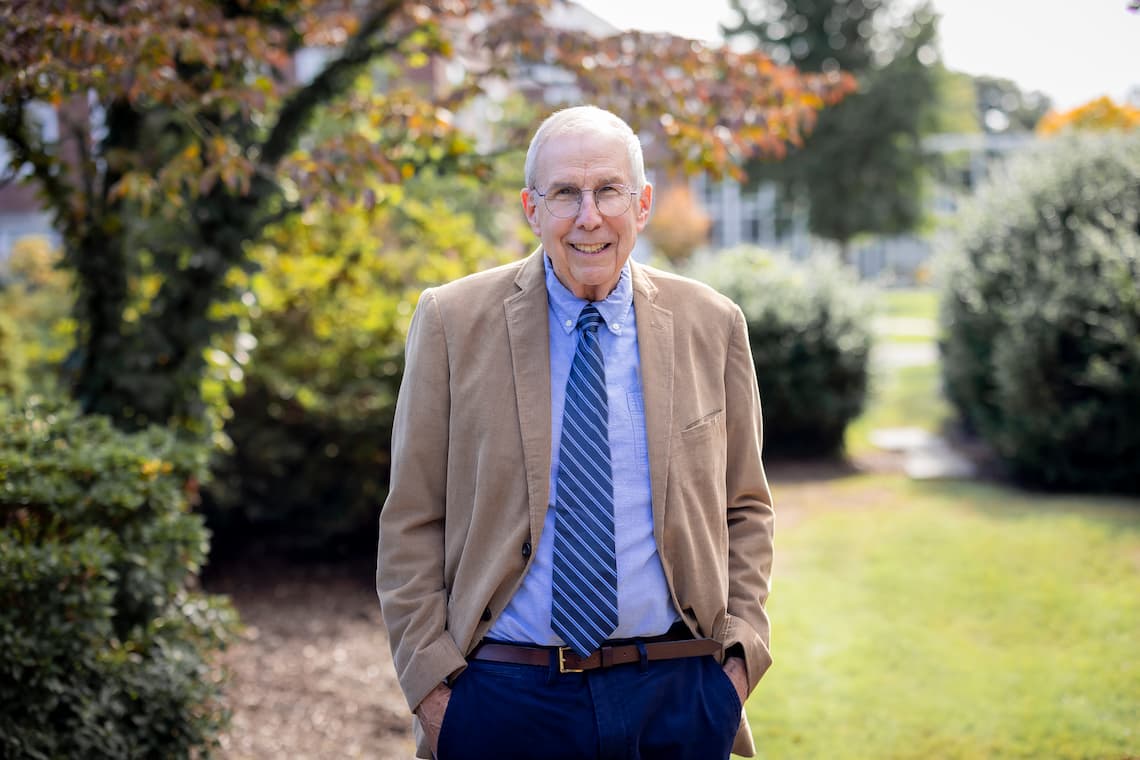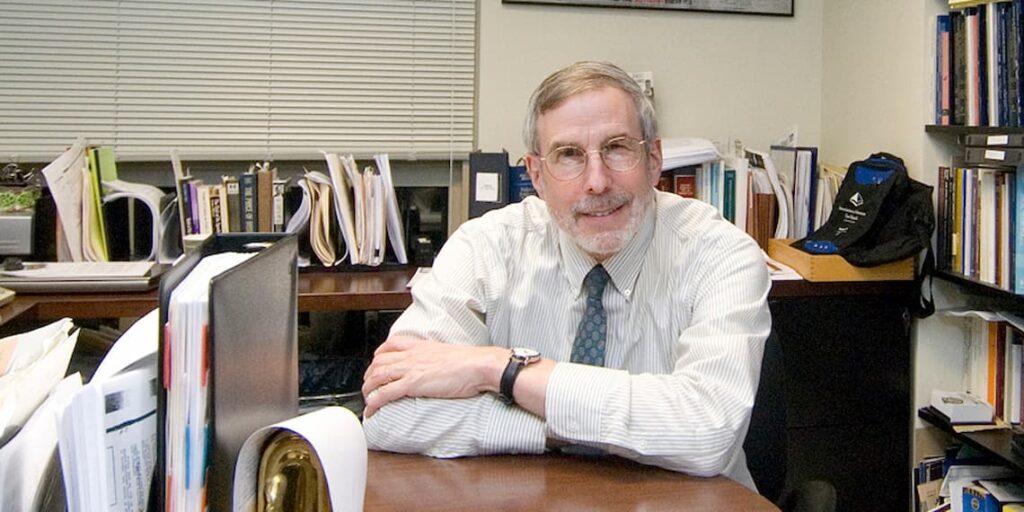B C Law Magazine sat down with Professor Mark Brodin to talk about his great impacts on Boston College Law School’s campus throughout the years. Brodin is a Michael & Helen Lee Distinguished Scholar and former Associate Dean for Academic Affairs at BC Law. His expertise primarily focuses on issues in civil procedure, employment discrimination, and litigation. He is the author of multiple widely used casebooks, highly cited law review articles, and a successful Examples & Explanations book.
Brodin graduated from Columbia Law School and clerked for the United States District Judge Joseph L. Tauro. He began his practicing career with the Lawyers’ Committee for Civil Rights under the Boston Bar Association, where he represented plaintiffs in individual and class action formats on issues of employment discrimination, housing discrimination, sexual harassment, First Amendment violations, and police misconduct.
This interview was conducted by Bella Burrell ’25.
Bella Burrell: Let’s start with the beginning. Can you talk a little bit about your career as an employment discrimination attorney prior to your transition into teaching?
Professor Mark Brodin: Well, it was a wonderful practice. I was really envied among a lot of people because I was at a public interest firm, but I had considerable autonomy in my practice. It was a wonderful place to be. The Boston Bar Association was a big supporter of my work. In fact, I worked for the Lawyers’ Committee for Civil Rights under the Boston Bar Association. I got to do employment discrimination cases, housing discrimination cases, police misconduct cases. I even did an occasional whistleblower and First Amendment case. I had wonderful colleagues there who I’m still very friendly with.
Burrell: What was your inspiration for practicing anti-discrimination work?
Professor Brodin: I always wanted to do civil rights. I had an uncle who was very active in the fifties and sixties in the Civil Rights Movement, and my parents were always inclined towards activism as well. So for me, anti-discrimination litigation was such a golden opportunity. I was coming out of a one-and-a-half year clerkship with Judge [Joseph] Tauro in the federal court, and this thing just opened up at the BBA. I was the first, and for many years the only staff lawyer there, so I litigated cases of my choosing. It was grand fun!
Burrell: What were some of your favorite topics to litigate?
Professor Brodin: Probably suing police departments on behalf of minority officers. It was a field that had to be broken through because the police departments were totally white and totally male. At that time–in the seventies–courts were open to these kinds of cases.
Burrell: It must have been gratifying to see the fruits of your efforts, right? Was there immediate change because of the litigation?
Proffesor Brodin: “Immediate” is the operative word there, because so much of the success ultimately got unwound. I published a law review article about this a few years ago. I had been reading about discrimination cases against the Boston Police Department and thought to myself, “Am I in some kind of dream world? I already litigated these cases!” Nothing had changed. The Boston Police Department was still, for the most part, totally white and totally male. And the department was still giving the same multiple choice tests to determine who got the job, which we know doesn’t take into account the skills needed to actually be a good sergeant or lieutenant. That undoing of progress was a real frustration. But, as you suggested, at the time there was great satisfaction.
Unfortunately, toward the end of the seventies, the US Supreme Court changed the whole direction of employment discrimination to the point where, in 1989, it decided six cases that basically overturned Title VII [of the Civil Rights Act] doctrine, and not to the advantage of plaintiffs. The changes were so bad that in 1991, Congress enacted the Civil Rights Act of 1991 and said, “No, you can’t do that.” It was a proverbial rollercoaster ride, but I loved it.
Burrell: What made you switch gears and transition into teaching?
Professor Brodin: I think I’d always wanted to teach. I didn’t think about it as an immediate career move, but basically two things happened at the Lawyers’ Committee. One was this movement toward reducing my role. We had this “long range planning retreat,” and that’s never good. The BBA was grateful for what I’d done, but they were clearly going to start playing a much bigger role in these cases. Secondly, the law started to turn against plaintiffs. Fortuitously, a buddy of mine left the Attorney General’s office around that time and went to [New England School of Law] to teach. He really talked it up and there was an opening at New England. So, I thought that maybe it was time to make the jump. So I did. And I never regretted it. I think I was the only lawyer who went into teaching who got a raise in salaries. I loved it from the start. I just took to it. I certainly missed the excitement of litigation, but on the whole, I think it was the right decision for me.
Burrell: What made you specifically come over to teach at BC Law School?
Professor Brodin: I got a call from Dick Huber, who was a beloved dean here, and he asked me if I would come over and teach Civil Procedure at BC, and I did. And it went well.
Eventually, my students created a petition that I think virtually everyone signed to get me to come back here full time. What I didn’t know is that, in order to have me as a visiting professor, Huber had to promise my old school that he wouldn’t raid me. So I couldn’t come to BC right away. After the following year, Huber called me and asked me to come to BC for good, and I was just delighted.
Burrell: Do you think your excitement about BC was a product of the community here, or were there other factors that inspired you to teach here?
Professor Brodin: The community was wonderful, and we prided ourselves on it. We talked about community all the time. There were some wonderful, wonderful people here. Truly brilliant faculty like Sanford Katz and Sandy Fox. And I would be in the corridor or overhearing the conversations going on, and I would think to myself, “How did I ever end up here?” It was just a whole different set of conversations than I’d been used to hearing. And I was both encouraged by that, but also fearful because of the obvious imposter syndrome. I became friendly with all of them over time, and I don’t think Huber regretted bringing me over.
Burrell: No, certainly not. And I wouldn’t be able to properly do this interview without recognizing that you’ve received a lot of teaching awards over the years. What would you characterize your teaching philosophy as, and why do you think it resonates well with students?
Professo Brodin: I think engagement is the key. As most of us who teach at law school and teach other places recognize, learning is a matter of being engaged in the material, engaged in the classroom, and part of the conversation. So, as you know, I talk about teaching as a conversation. It’s not a monologue. If we’re a monologue, I’d be bored to tears. My approach is to get students thinking about how they might argue a particular position or defend a particular position.
What we first year law teachers are really teaching is what it is like to be a lawyer. We’re all teaching basically the same skills, but in different subject matter contexts. To that end, I got to know Steve Subin at Northeastern by teaching there a few times at his invitation, and he had developed this series of interactive civil procedure materials. I was terribly flattered when he asked me to join him in developing them. His philosophy and mine were totally congruent. He’s a delightful man. So it all kind of came together. I’m able to connect with the students, even in classes that—at the time—were approaching 200 students.
Burrell: How has your style evolved over the years?
Professor Brodin: It’s changed in a very tangible way. Before a certain point, I would cold call people. I switched my system a few years ago to accommodate concerns about creating undue anxiety among systems among students]. Now I do a panel, and I like the vibe much better. I remember being called on in large classes and it was absolutely terrifying. I realized I just don’t want to do that to students anymore.
Burrell: What’s your favorite subject to teach in Civil Procedure?
Professor Brodin: I think my favorite is Erie. My thought is that if you connect the concept with a story then people might remember it more. I include all of the information about the extent of Harry Thompkins’s [the injured party in Erie] injuries and the fact that he died penniless. That’s all part of the story, and it’s fascinating to me that Justice [Louis] Brandeis, “the People’s Lawyer,” could pen a decision that takes away from this woefully injured individual and takes away his lousy $30,000 verdict. There’s just so much embedded in the Erie story.
Burrell: BC Law gets a markedly different reputation from other law schools around us for our community values. Why do you think that is?
Professor Brodin: This is always a perplexing question. I was on the Admissions Committee for most of my time here, and I just couldn’t understand how we would get students to come every year who were just really nice people and committed to social justice and other goals and who were not nearly as cutthroat and competitive as other schools. We have a great, cohesive group that is a wonderful bunch of people to be with. Maybe it’s self-selection, or maybe it’s that people here are good at picking out the right kinds of candidates.
Burrell: You and Professor Bob Bloom are quite the dynamic duo here on campus. How did your friendship come to be?
Professor Brodin: They used to call us the “Civil Procedure Twins!” It all started when I was at the Lawyers’ Committee of Civil Rights. BC had a clinical program, a very ambitious program called the Urban Legal Laboratory. And students would intern for an entire semester, maybe even continue to another semester with one particular law office. Most of them were in public interest offices. Bloom was in charge of the laboratory. During my early career, I had the opportunity to have two interns in that program work with me at the Lawyers’ Community for Civil Rights. And we got very close as you do when you are working like that. Bloom would occasionally come down and kind of monitor what was going on. And we became friendly in that way.
I think one of the turning points was when I had this twenty-day trial in front of a judge for an employment discrimination case against the Barnesville Police Department. Bloom happened to show up, and he was sitting in the audience frantically taking notes. Afterwards, we sat down and he gave me some very helpful tips about how to keep track of the direct examination and develop a cross examination. After that, I thought, “Gee, this is the beginning of a wonderful friendship.”
Burrell: Switching gears a bit, a lot of scholarship has followed current political regimes in the United States, particularly through the lens of Constitutional law and procedure. What continues to draw you to this subject matter?
Professor Brodin: That’s a very interesting question. I have trouble focusing on anything other than what’s going on in the world. My last two articles have to do with the Supreme Court’s cowardly refusal to disqualify Trump and the evolution of congressional hearings. By the way, these types of pieces are impossible to place at law reviews.
Burrell: Do you think it’s because of the political content?
Professor Brodin: I’m convinced of it. Rightfully, 2Ls are concerned about political messaging, especially with the rise of doxxing and all that stuff. But I can’t go back to traditional doctrinal research. Some of these decisions—like the disqualification one—are just so wrong that you can’t discuss it without talking about politics. I’m just in this groove with this type of stuff. I can’t get out of it, nor do I want to.
But for the congressional hearings article, I’ve gone back to the Hollywood 10 investigation. Basically, at the end of the forties, a Republican Congress decided that Hollywood was propagandizing the American public and turning it into a Marxist and Leninist society. It was beyond laughable. For five years, they held these hearings in which they summoned great directors, actors, producers, and screenwriters. And they tried to do something very similar to what our current Congress tried to do to the three representatives for universities experiencing anti-semitism on campus. In the Hollywood 10 context, Congress succeeded in getting people to name names and turn in their friends. It’s a pattern of repressive and abusive investigations in Congress that has persisted.
Burrell: What areas of research do you think young scholars should dig more into in years to come?
Professor Brodin: One of the developments of the last decades has been the opening up of Supreme Court justices’ papers, and I’ve never delved into that. I think there’s a wealth of stuff in each of these justice’s papers about how they came to certain opinions. Those papers raise interesting questions about how each case got resolved.
Burrell: If you could choose, what would your legacy be at BC Law?
Professor Brodin: These things always make me kind of fearful, but I’d like my legacy to be that I was a committed teacher in the classroom, thoroughly enjoyed the interaction with students, and I hope they did too. And I hope that I created an effective learning environment for the students. I’d also like to be remembered as someone who really cared about students and their futures and tried to lay out for them what a public interest career looks and feels like.
As for my scholarship, I’d like to be remembered as a productive scholar who wrote in a very wide variety of fields. I don’t know anyone who has written in as many different fields as I have. And part of it is that these things just came to me.
Burrell: What are your hopes for the future of BC Law?
Professor Brodin: I think BC has always been on the right track in terms of preparing lawyers who are ethical and concerned about social justice. I think we have plenty of students who are doing neat and impressive stuff. I’m hopeful and optimistic about the future of this school because I think we have a unique community among law schools that I hope will continue to flourish. I hope we will preserve this environment for years to come.


